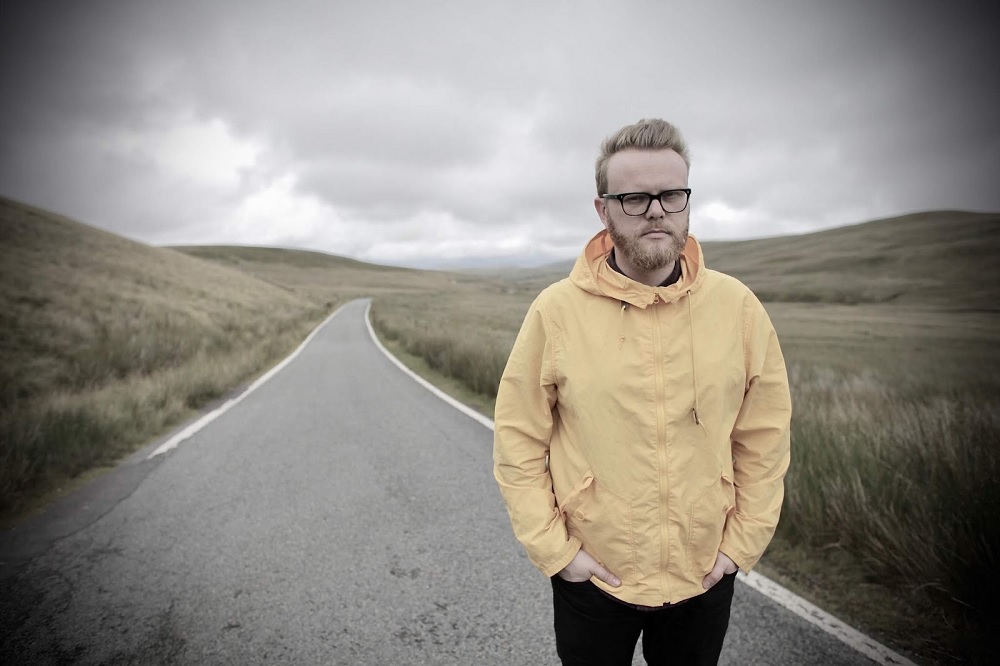Review: ‘Anorac’ is a superb celebration of Welsh language pop

Jon Gower
Bravo. This road movie-come-documentary-come-homage to Welsh language pop is easily one of the best things I’ve seen on the box in many a long moon.
Over the course of 90 minutes, self-styled music geek or anorak Huw Stephens took us on a musical journey around today’s dynamic scene, as well as delineating the history of “canu pop Cymraeg.”
By coincidence, this was the 50th anniversary of the appearance of the first Welsh pop disc, so in that sense it was a celebration too.
In all ways the perfect presenter, Stephens, a veteran of Radio 1 and Radio Cymru has presented thousands of shows and is knowledgeable, personable, passionate and proud of his Welsh roots. And from the moment he left the London studio, put on his yellow anorak and slung his record collector’s rucksack over his shoulders, his was an uplifting, informative and entertaining journey.
Opening with nightscapes of his native Cardiff pulsing to a Krautrock soundtrack by R. Seiliog, Stephens admitted he always feels the powerful call of home which “some call hiraeth, but for me it’s a magnet I can’t resist, a force that pulls me back”.
Imaginative
For some of his interviewees, performing in Welsh has been both liberating and transformative. Growing up in Merthyr Tudfil Kizzy Crawford found that singing in the language was a way dealing with feeling different from other people.
When young, beatboxer Ed Holden, a.k.a Mr Phormula didn’t feel the language offered him anything, didn’t connect with him in any meaningful way. Until, that is, an offer was made to join a band helmed by Aaron Elias.
Ed listened to one of the band’s track on the hi-fi in his parents’ house in Amlwch on Anglesey: it was a Damascene moment, more than enough to change his mind, not least because of its echoes of New York City’s Wu-Tang Clan.
Mr Phormula is now very proud that beatboxing is on the school curriculum in Wales while he himself earns a living turning his body into an instrument, backing himself all the way as it were.
Huw Stephens met two of his heroes out West, each offering a very different take on the current state of play. Meic Stevens once famously turned down a Warner Brothers deal that could have turned him into another Bob Dylan, plumping instead for singing in Welsh. A genuine, restless troubadour, Stevens doesn’t feel there are adequate opportunities for Welsh language musicians nowadays.
Conversely, one of the greatest influences on today’s generation, post-punk band Datblygu’s David R. Edwards thinks that things are ‘brilliant’, a view shared by Super Furry Animals frontman Gruff Rhys, featured here playing at Portmeirion’s Festival No 6 and reminding us why they remain a gigantic imaginative musical force.
Act of love
The programme demonstrated the ample range of music currently being made, from the electronica of Abergele’s Dau Cefn, creating soundscapes that would grace an art gallery to the power plays of rockers Joy Formidable who command a, well, formidable following in the U.S.
As ‘Anorac’ explained, the whole Welsh language pop scene started with bass player Dafydd Evans’ decision to put a band together in 1967. Y Blew (The Hair, so apposite a name for that hippie year) toured the country no fewer than three times in the same summer that the Beatles introduced the world to Sergeant Pepper. The hairy ones pressed and sold 1000 copies of their first single, now much sought after both as an artefact and literal record of the age.
It says something that this film was made as an act of love by the producer/director Gruffydd Davies, who filmed it in his spare time, as the idea was originally turned down by S4C commissioners. Along with cameraman Joni Cray, Davies conjured up a superb array of images that gave this film the expansive feel of a real road movie despite this being a country which doesn’t have any great stretch of road, no real Route 66.
So Carwyn Evans of Colorama sang in plain air to bemused chip eaters on the Hayes in Cardiff while Meic Stevens serenaded Huw on a bar stool in his native Solfach. There were songs in bus stops, scrap yards, fairgrounds and nightclubs so we had a sense of the land and how it shaped the music.
Edited by that doyen of the cutting room Madoc Roberts, the imagery perfectly reflected the energy and melody of the individual songs, from the psychfolk-popp of Denbigh’s Anelog to the open space country sound of Cowbois Rhos Botwnnog, simply filmed in a big empty room.
In one of the programme’s sequences, a montage of Welsh graffiti included these words by J.R.R. Tolkien. ‘Welsh is of this land. The senior language of Britain. And Welsh is beautiful.’
More than that this superb documentary showed that it is vital, communicative, invigorating and inspiring. And musical too: we can’t be forgetting that.
Anorac, by Boom Cymru for S4C, can be watched here.
We can’t run Nation.Cymru without your help! If you support the development of an independent Welsh media for the people of Wales, please donate now!
Support our Nation today
For the price of a cup of coffee a month you can help us create an independent, not-for-profit, national news service for the people of Wales, by the people of Wales.





